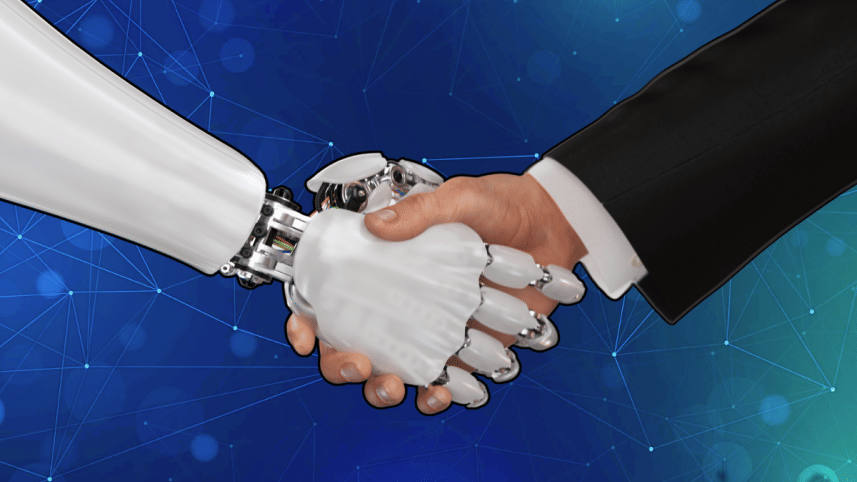Humans and AI: Partners in progress or rivals in employment?

Artificial Intelligence (AI) is actively transforming workplaces, economies, and societies. The World Economic Forum's (WEF) 2025 Future of Jobs Report illustrates an imminent technological renaissance. With practical insights, the report highlights three key areas: the necessity of reskilling and upskilling programs, the importance of flexible wage and hiring practices, and the simultaneous creation and displacement of jobs.
This report also epitomises a seismic shift that is not merely about the displacement of jobs but the creation of new ones, highlighting a dual-edged sword of opportunity and challenge. In essence, this report does not only foretell about the future; it serves as a crucial signal for employers, policymakers, and workers to prepare for one of the most significant labour market shifts in history.
The AI revolution: A double-edged sword
The report's core message is clear: AI is not just knocking on the door; it is breaking it down. It discusses a significant shift in the corporate landscape due to artificial intelligence, with an impressive 86% of companies preparing for AI's transformative impact by 2030. This technological wave is anticipated to generate 170 million new jobs, representing 14% of current total employment. The roles expected to see the most growth are directly related to AI, such as big data specialists and machine learning experts, echoing findings from earlier reports where technology jobs were among the fastest-growing sectors.
Yet, there's a flip side. Approximately 92 million current jobs are projected to be displaced. The net effect will be a growth of about 78 million jobs, or 7% of today's total employment, by 2030, representing 8% of total employment, highlighting AI's dual role as both creator and destroyer of employment opportunities.
Reskilling and upskilling: The new mantra
One of the most alarming findings from the report is the pervasive skills gap. This gap is not just about technical skills; Rather, it is about the ability to learn, adapt, and innovate. The report notes that three-quarters of organisations plan to upskill their existing workforce to work alongside AI, and 70% intend to hire new talent with AI expertise.
This dual approach of reskilling and new hiring reflects a broader understanding that human skills like creativity, critical thinking, and emotional intelligence remain irreplaceable, even as machines take over more technical tasks.
A McKinsey Global Institute study complements this view, suggesting that by 2030, the demand for technology skills could increase by 55%, emphasizing the need for ongoing education. The report's call for flexibility in wage setting and hiring practices addresses these issues directly. The focus on continuous learning isn't just about keeping up with tech; it is about empowering individuals to navigate a career landscape that's increasingly dynamic.
Strategic workforce adaptation
The implications for businesses are profound. Surprisingly, half of the companies are not just preparing for AI; they are reorienting their entire business models around it, seizing new opportunities that this technology presents. However, 40% are also preparing for efficiency gains by potentially reducing workforce size where AI can take over mundane tasks, suggesting a need for strategic downsizing rather than indiscriminate layoffs, focusing on roles that can be effectively replaced by AI. As such, man-machine interaction and flexibility in wage setting and hiring practices prove to be a necessity in the age of AI.
The human element in an automated world
While the numbers might paint a picture of chaos, the narrative is not solely about loss. The report emphasises a significant pivot towards human augmentation rather than replacement. Three-quarters of surveyed organisations plan to upskill their current employees to work alongside AI, this proactive approach reflects a recognition that human skills—such as creativity, empathy, and strategic thinking—are irreplaceable in the workplace. This is not just about keeping jobs; it is about evolving them to be richer, more productive, and perhaps more fulfilling.
A collaborative approach to the future
The narrative of AI's impact on jobs is not one that can be addressed in silos. Organisations are beginning to view AI as a partner rather than a competitor. By fostering an environment of collaboration between humans and machines, businesses can harness the strengths of both to drive innovation and growth.
Likewise, the report advocates for a collaborative, multi-stakeholder strategy involving businesses, governments, and civil society. Governments worldwide are tasked with fostering environments where education and training evolve in tandem with technology. This is not just about preparing individuals for jobs; it is about preparing societies for a new economic era where human-machine collaboration is the norm, not the exception.
Closing thoughts: Embrace change with wisdom
Ultimately, the report emphasises the urgent need for a proactive approach to the changes brought about by AI. Since AI is reshaping our economic landscape, the response must be multifaceted - from individual upskilling to systemic educational reform, from corporate strategy to public policy.
The overarching message is clear: embracing AI presents an opportunity for growth and innovation rather than a threat. By improving collaboration between humans and machines, and by implementing systemic changes across various sectors, society can harness the full potential of AI while ensuring a prosperous future for all stakeholders involved.
Md Abdul Malek is a graduate student at the University of California, Los Angeles. He is reachable at abmalek@ucla.edu.



 For all latest news, follow The Daily Star's Google News channel.
For all latest news, follow The Daily Star's Google News channel. 
Comments